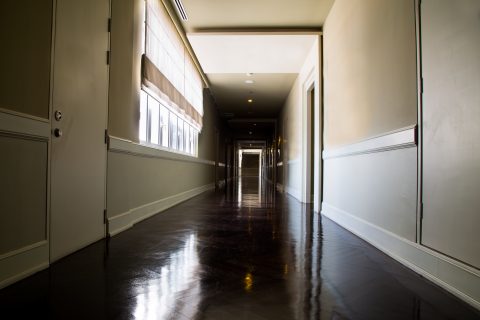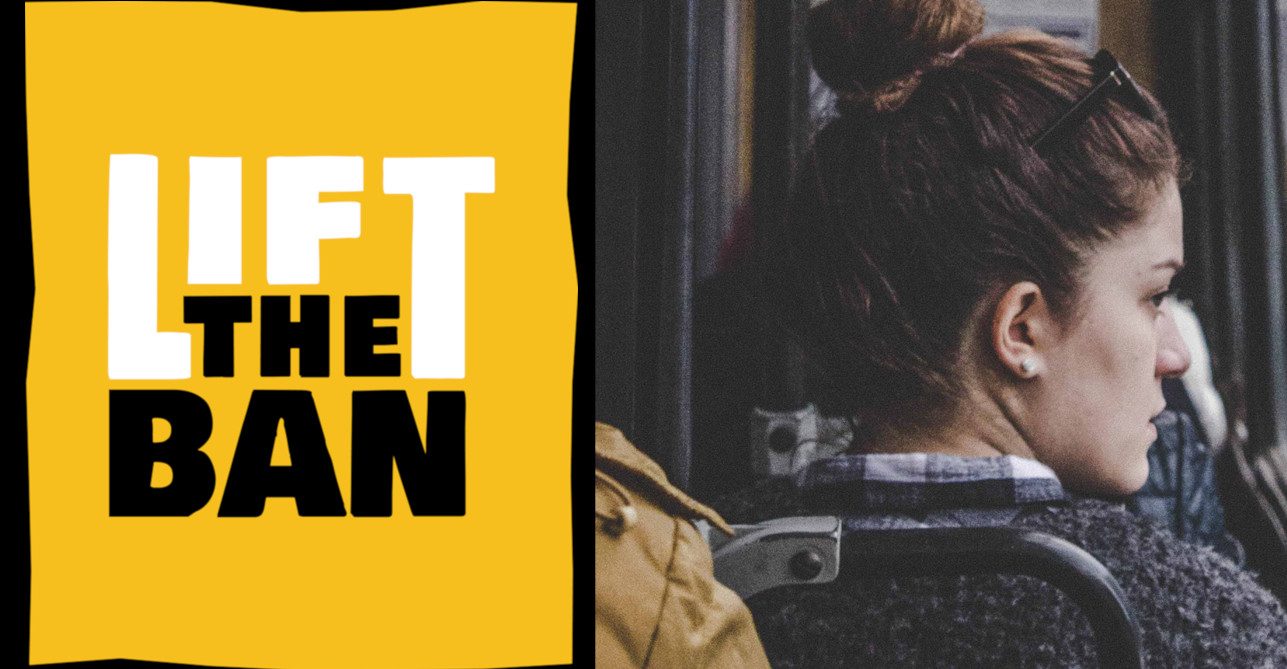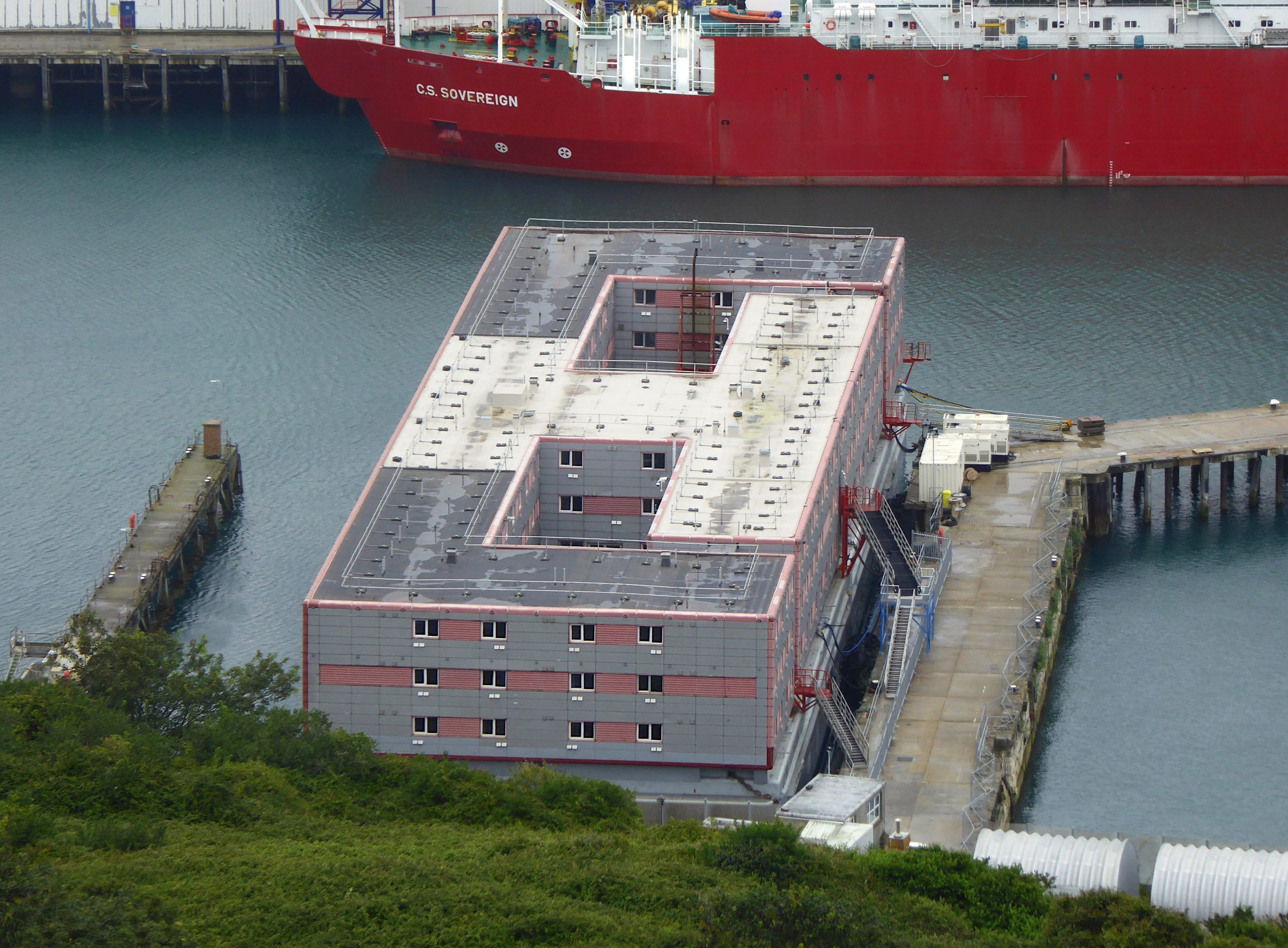Rethinking the UK’s Asylum Accommodation Plans
Written by: Caroline Echwald

The UK has a legal and moral duty to provide safe and adequate accommodation to people seeking asylum. People who arrive in the UK in search of safety are often fleeing conflict, persecution or serious human rights abuses. While their claims are being decided, they depend entirely on the support and protection provided by the state.
However, the recent announcement from government to relocate people seeking asylum into military barracks and “pop-up” sites in order to end the use of hotels, once again bring the state of asylum accommodation into question.
This new plan would see thousands of asylum seekers moved into military sites. The Cameron Barracks in Inverness and Crowborough Training Camp in East Sussex have already been identified to house the first thousand.
While reactions have been overwhelmingly concerned, with MPs, community leaders, and refugee support groups calling the proposals inhumane, expensive and logistically difficult, the plan is presented by government as a solution to the ongoing discontent around people seeking asylum housed in “luxury sites”.
Accommodation standards under scrutiny
While hotels are described as “luxury” the reality is that the asylum accommodation system is under severe strain and does not meet the basic standards of dignity. Inspections and numerous reports have found that some asylum accommodation in the UK falls far short of acceptable living standards with one report stating that many are housed in,” accommodation that is inadequate or deeply unsuitable” naming long stays in hotels as “deeply harmful.”
Housing people seeking asylum in hotels is clearly an inappropriate solution. Not only has it provided unsuitable housing, but the continued inflammatory rhetoric about “luxury hotels” has placed people seeking asylum is harm’s way, with racist riots outside of hotels and attacks on buildings used for housing.
But one bad accommodation solution should not be replaced by another. Organisations such as Helen Bamber and Asylum matters have previously highlighted the lasting harm and inhumane living conditions of using military barracks or barges, a parliamentary inquiry has even described living in these sites as “quasi-detention.”
This calls for a better asylum accommodation system where people can live in safe and suitable housing, begin to rebuild their lives and become part of the community around them.
Why we need asylum accommodation and support
Most people seeking asylum are not allowed to work while their claim is being considered. The right to work is only available in limited situations, for example, when a person’s claim has been outstanding for more than 12 months where it is by no fault of their own, and even then, they are only allowed to work certain jobs on the Government’s Shortage Occupation List, however this may change. This ban on work, means people are forced to depend solely on Home Office support, and this ban simultaneously deprives the UK of the skills that many asylum seekers could and want to contribute.
Part of the Home Office support system is a weekly cash allowance. As people seeking asylum are banned from working, those awaiting asylum decisions are reliant on the Home Office support they receive to sustain themselves. The allowance is just £ £49.18 per week, or just £7 per day to cover food, clothing, and essential needs. Many charities argue this level of support is incompatible with dignified living in the UK today. For example, the British Red Cross says that people relying on £49.18 per week face “prolonged financial hardship and periods of destitution”.
In addition, people seeking asylum are under “no recourse to public funds” (NRPF) restriction. This means they cannot access other welfare benefits or housing support, even when they are clearly in need. As a result, if the Home Office support system fails or breaks down, there are very few lawful routes to meet their basic needs.
This combination of restricted work rights, restricted access to support, and poor living conditions effectively traps people in poverty and isolation, often for years while their claims are heard.
I you want to support the campaign to end the ban of working for people seeking asylum, you can sign the open letter from the Lift The Ban Coalition.

Moving forward
The UK’s asylum system should uphold the rule of law and basic human dignity. Adequate housing, sufficient financial support and fair access to work are not luxuries, they are fundamental safeguards that prevent destitution and protect human rights. Further, they allow people to become part of local communities and rebuild their lives.
Moving thousands of people, often vulnerable or traumatised, into barracks and military sites will not solve the ongoing issues of poor housing and isolation. Importantly, it does nothing to resolve the tension that has been created by racist rhetoric around the topic of asylum. To begin to solve that, we first need to recognise the obligations of the UK, the restrictions that people seeking asylum are under, and the experiences of the UK asylum system as told by those who have gone through it.
Above, we have highlighted why asylum support is essential and why hotels and barracks have been deemed unsuitable accommodation on several occasions.
Below we have listed a a few things you can do to help the work for a better asylum system and better asylum accommodation:
Asylum policy is often cast as a binary choice between strict control and open doors. But the real question we face is about competence and humanity: do we have a system that manages arrivals in a way that embraces people and communities, or a system that furthers misery and insecurity?
-

The case for dignified asylum accommodation
Written by: Caroline Echwald
The Institute for Public Policy Research (IPPR) recently released a compelling report highlighting the urgent need for a shift in how asylum accommodation is managed in the UK. With annual costs for housing and supporting asylum seekers in the UK now at a staggering £41,000 per person, up from £17,000 in 2019/20, the current system is unsustainable. […]Read article -

AI in the UK Asylum system: Innovation or injustice?
Written by: Caroline Echwald
Artificial intelligence (AI) is rapidly becoming part of how governments manage immigration and asylum processes. In the UK, where the asylum system is facing record delays, AI is now being used in new ways to help process claims. According to the Home Office, trials of AI-assisted tools have shown potential for making decisions faster. But with […]Read article -

Pause on Refugee Family Reunion Means More Family Separation
Written by: F Ahmed
The latest last-minute announcement on Monday represents a marked shift in cruelty of the Labour Government. In Yvette Cooper’s latest move, she has announced that Family Reunion applications under the scheme would be paused after 4 September 2025 at 3pm, with possible new restrictions introduced in 2026. Applications submitted before that date and time will […]Read article
Categories: AsylumHuman RightsImmigration Rights
